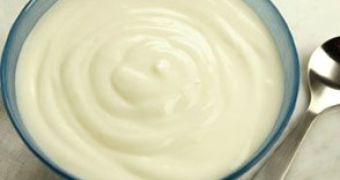Probiotics and prebiotics are the “friendly bacteria” we’ve been hearing so much of in recent years. They can be found in yogurt and marked as a genuine revolution for intestinal health, as they help balance the level of bacteria in a way that does not interfere with the friendly ones. The same could also hold true in terms of skincare, which would translate into a healthier, more youthful skin, granted further studies provide enough evidence to back up the initial claims.
According to the Daily Mail, probiotic products are already available on the market, despite the fact that the theory of their benefits is still in its initial phases. Probiotics and prebiotics reportedly help the skin balance the level of bacteria, which would eliminate the bad ones that cause acne and eczema.
This way, the skin microflora would be encouraged to fight these bacteria, and the countenance would keep its healthy and youthful aspect for longer, unlike what happens with regular skincare products that affect both types of bacteria and thus facilitate the appearance of the latter.
“When the balance of microflora is damaged, the skin becomes irritated. The body responds to this irritation by creating free radicals, thought to play a part in premature aging of the skin, and a collagen-digesting enzyme. Given that collagen is essential to young-looking skin, the last thing you want is to destroy it.” Emma Newman, from a brand that has a probiotic face cream on the market, says for the Mail.
Her words echo two small studies that have demonstrated that probiotic products actually influence the appearance of the countenance. One was published in the British Journal of Dermatology and showed that eczema improved when patients were treated with a probiotic cream, and the other appeared in the Journal of Dermatological Science and demonstrated that the levels of bacteria causing acne could be lowered with probiotics without influencing the levels of the good bacteria.
However, the answer to the century-old problem of acne and bad skin might not be as simple as we might think, specialists warn. Before we jump on the probiotics bandwagon, it would be recommended if we waited for full confirmation of the theory, they maintain. “I’m just not convinced about some of the claims that are being made with regard to anti-aging. Until more microbiological studies can prove it, I’ll continue eating my yoghurt rather than smearing it on my face.” Dr. Nick Lowe, consultant dermatologist and spokesperson for the British Association of Dermatologists, shares.

 14 DAY TRIAL //
14 DAY TRIAL //